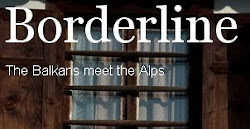Today I was fully under the spell of Andrey Tarkovsky's Mirror. A month ago I had the urge of watching quality Russian cinema again and we started by Mirror and what a good choice.
I was thinking today why I liked it so much and what makes it different. I know it sucks a bit to demystify beauty but a bit of rationalism wouldn't hurt after all. I live in France after all, 200 m. from the place where Voltaire spent the last 20 years of his life.
One of the things that I really liked is the dream-like character of the shooting. Tarkovsky kind of invites us all to dream with him of his childhood. I don't know how he does this from a cinematography point of view but it seems to me that it is mostly through the long takes. I like so much these long minutes when the camera roams in forests and meadows, looks into the eyes and then away into the distance. Good life is a long take, isn't it? Today I have been thinking that a long take shows a bigger respect to the viewers, there is less trickery in a way. Long takes slow down time and free space for thinking.
This is the second reason I liked it so much - the free space. Mirror is a movie where there are lots of free spaces for thinking and living-with in a compassionate way. By free spaces I don't mean clumsy gaps but silences which one can load with emotions or let go in a Buddhist way. It's again about respect for the viewer, about giving him/her a share of authorship.
Dealing with time in this movie is phenomenal. Tarkovsky shows so well that one is the child one used to be. In a way time is one, times merge together and childhood is not left away in a dusty attic. Indeed, it is reflected in a mirror and often swims in white haze but it is still there, just a dream away.
Mirror is a also a movie about the father, the missing father. Arseny Tarkovsky, an important Russian poet, left the family when Andrey was five. The father who used to appear on the horizon came no more. Arseny's beautiful poetry is read throughout the film. There is no judgment there. Things are as they are, beauty is all around.
This is a link to the First Date poem which is about love, of course. Both the Russian original (very beautiful) and the English translation are there.
And suddenly all changed, like in a trance,
Even trivial things so used and tried.....
And....if you are curious about it, just watch at the scene I embedded. It's seven minutes but it is worth it. It's a scene of intense beauty where one finds all: the longing, the endless sadness, the mysterious wind.........And among all this the amazing stranger who comes by mistake, quickly understands all about her loneliness, falls with her and then surprisingly throws this pantheistic idea about the plants which feel, know and comprehend. All our problems come because we refuse to trust the nature which is in us, because we don't have time to think....
marching in under the wire
2 weeks ago







